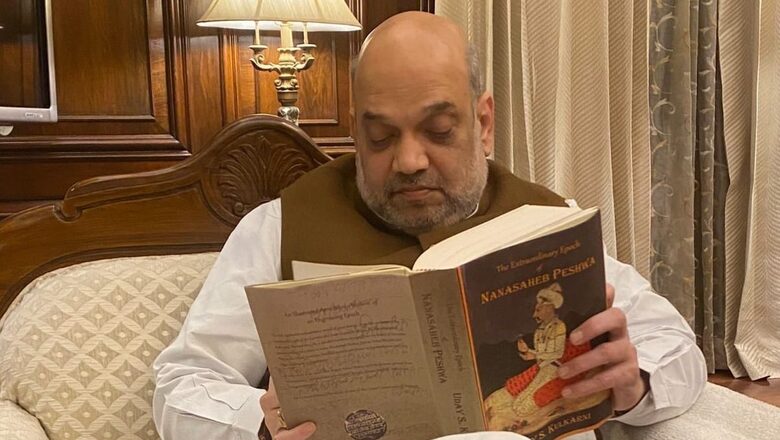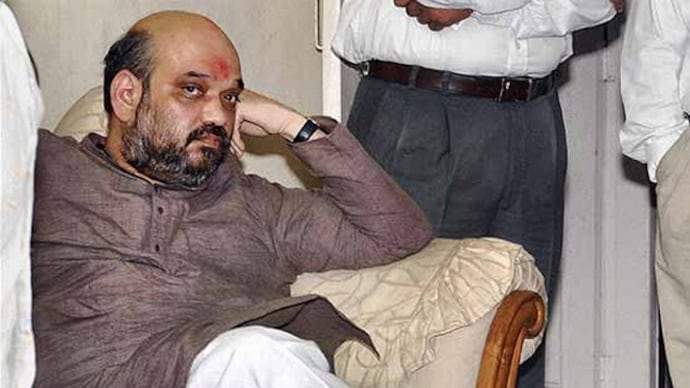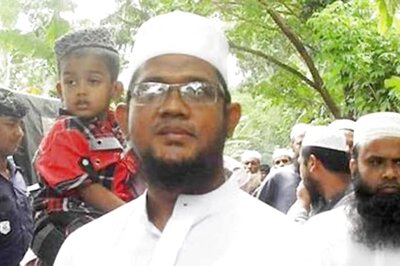
views
Amit Anil Chandra Shah, often called the Chanakya of Indian politics, first read Kautilya’s ‘Arthashastra’ (Sanskrit treatise on statecraft, politics, economics and military) when he was nine years old. Since then, he has read it several times and internalised one Chanakya Niti — “The king shall singly deliberate over secret matters; for ministers have their own ministers…” Kautilya stressed the need to maintain secrecy and keep the surprise element. Shah himself has said multiple times, “Success of a project depends on its secrecy”. As home minister, be it August 5, 2019, when Article 370 was abrogated or very recently when the government changed the entire jurisprudence by bringing in three new bills — very few had any idea that what Shah was up to.
New Criminal Bills
Apart from being BJP’s most successful president, it’s the way he ran the government as the home minister and shaped India’s future that has made many people pause and observe. This year, he will be remembered for leaving a lasting legacy in the administration by bringing in three new bills to replace the existing Indian Penal Code, Code of Criminal Procedure, and Evidence Act, which had governed India’s criminal justice system for the last 150 years.
The Bharatiya Nagarik Suraksha (Second) Sanhita, 2023, and The Bharatiya Nyaya (Second) Sanhita Amendment Bill, 2023, which were introduced with the intent to “break the shackles of colonialism” and fit for a New India, have been passed in Lok Sabha. In a fast-changing world, a host of reforms have been brought in under the eye of Amit Shah.
Search and seizure operations will now be video-graphed through electronic devices. For the first time, the Centre has identified terrorism as one large reason behind bringing in many radical changes. With the implementation of these bills, the death sentence has been commuted to life; life imprisonment has been reduced to seven years; and the seven years’ sentence has been replaced with three years.
Colonial words such as ‘Parliament of the United Kingdom’, ‘Provincial Act’, ‘London Gazette’, ‘jury’, ‘barrister’, ‘Lahore’, ‘Commonwealth’, ‘United Kingdom of Great Britain and Ireland’, ‘Her Majesty’s Government’, ‘Possession of the British Crown’, ‘Court of Justice in England’, ‘Her Majesty’s Dominions’, which are still being used have been removed. Complex procedures in the IPC, CrPC, and Indian Evidence Act have led to high pendency of cases in court. So, Shah oversaw that it gets simplified.
About the bills, Shah said under the newly amended laws “if one accepts their crime within 30 days of the crime, then the punishment would be less…” What’s more? The laws give priority to “crime against women/children, impact on the human body and security of the country”, the home minister said. Under the amended laws, the deadline for filing an FIR has also been fixed. In the lower house, Shah focussed on “time”, “After submitting the investigation report to the District Magistrate, it will have to be presented before the court within 24 hours. There is a provision to send the medical report directly to the police station/court within seven days. Charge sheet can no longer be kept pending after 180 days”. Thus, trying to make delivering justice time-bound instead of a never-ending bureaucratic process that kills more than the verdict itself.
India’s G-20 Presidency
Under India’s G20 presidency in the second week of October, the world’s most powerful leaders — US President Joe Biden, UK Prime Minister Rishi Sunak, Canadian Prime Minister Justin Trudeau, French President Emmanuel Macron, Australian Premier Anthony Albanese, Turkish President Recep Tayyip Erdogan — gathered in New Delhi. To ensure a glitch-free summit, unprecedented coordination between India’s most premiere law enforcement agencies and their foreign counterpart was required. As home minister, the buck stopped with Amit Shah, and he delivered a seamless event.
From a possibility as big as a terror attack to as small as half a dozen protestors showing up in front of Bharat Mandapam — the venue of the G20 summit — nothing could be ignored.
Thorough background checks of hotel staff who were going to host the top dignitaries, issuance of specific access cards for designated floors, and preparations for potential interventions by the Indian Air Force and National Security Guard (NSG) — it was a comprehensive task. The Air Force and NSG conducted drills over designated hotels to assess their readiness for potential air-dropped commando operations in emergencies, such as the one at Taj Mahal Palace Hotel in Mumbai during the 26/11 terror attacks, leaving nothing to chance. Around 1,000 CRPF personnel underwent specialised training for proximate security over two months.
Around 4,000 Delhi police personnel were deployed at the Bharat Mandapam. Additionally, 1,300 policemen donning plain clothes and 400 Delhi traffic policemen were stationed outside the G20 summit venue.
If one word could summarise the preparation — it was “elaborate”, and as India’s home minister Amit Shah had to oversee every bit of it, predicting every worst possibility and ensuring contingency plans for that. Remember, the minutest glitch would result in global ramifications.

A BJP leader who has closely worked with Shah before the 2014 Lok Sabha elections told News18 on conditions of anonymity, “I have travelled thousands of kilometers with Amit Bhai in Uttar Pradesh. I have seen how he would keep three plans ready. He doesn’t stop at Plan B. Many of us wouldn’t have a Plan B. As the home minister, this helps in events like G20”.
Kashmir’s ‘Achhe Din’
In his book — ‘Kitne Ghazi Aaye Kitne Ghazi Gaye’ — Lt General (retired) KJS Dhillon has at length talked about Amit Shah’s June 2019 Srinagar visit. “I got a call at 2 am in the morning, informing me of a meeting with the home minister at 7 am”. The retired Lt General, who was the head of the army’s strategic Srinagar-based XV Corps, wrote, “I was asked about my frank and personal view, (and) my immediate response was ‘agar itihaas likhna hai, toh kisi ko itihas banana padega’ (we can write history only if we make one).”
In less than two months after that meeting, Shah would rise in Parliament to junk two contentious Articles — 370 & 35A, “writing history”, as Dhillon suggested in June.
But four years, many protests and months of shutdown later, the great-grandson of the Nagarseth (Capital city chief) of the princely state of Mansa has truly ushered in ‘Ache Din’ in J&K. The latest data from the Ministry of Home Affairs (MHA) shows that J&K has seen a dip in terror activities from 2019 to 2022. According to the Centre, 53 projects across diverse sectors, with a staggering investment of Rs 58,477 crore, have become the cornerstone of ‘New Kashmir’.
Air traffic to and from Jammu and Kashmir doubled post-2019, with the introduction of night landing facilities in Jammu and Srinagar. Meanwhile, tourism, a crucial pillar of J&K’s economy, flourished, the government said. The details given by the MHA said there is a tourism boom in J&K. The region hosted the 3rd tourism working meeting of G20, placing it on the global stage.
According to the ministry, the transformation resonated in the healthcare sector, where seven new government medical colleges, 28 BSc nursing colleges, and 19 BSc paramedic colleges sprang to life. The addition of 800 MBBS seats, totalling 1,300 seats, marked a significant leap forward, the data revealed. The academic session at the All India Institute of Medical Science (AIIMS) in Jammu began, while work on AIIMS in Kashmir is surging ahead at an optimum pace.
Apart from the health sector, the Union home ministry in December this year said that education has received a considerable boost with the functional establishment of the Indian Institute of Technology (IIT) and Indian Institute of Management (IIM) in Jammu, making it the only city in the country to house IIT, IIM, and AIIMS.
The 59-year-old modern-day ‘Chanakya’ has many layers of his Chanakya Niti to unfold in the months and years to come.

















Comments
0 comment